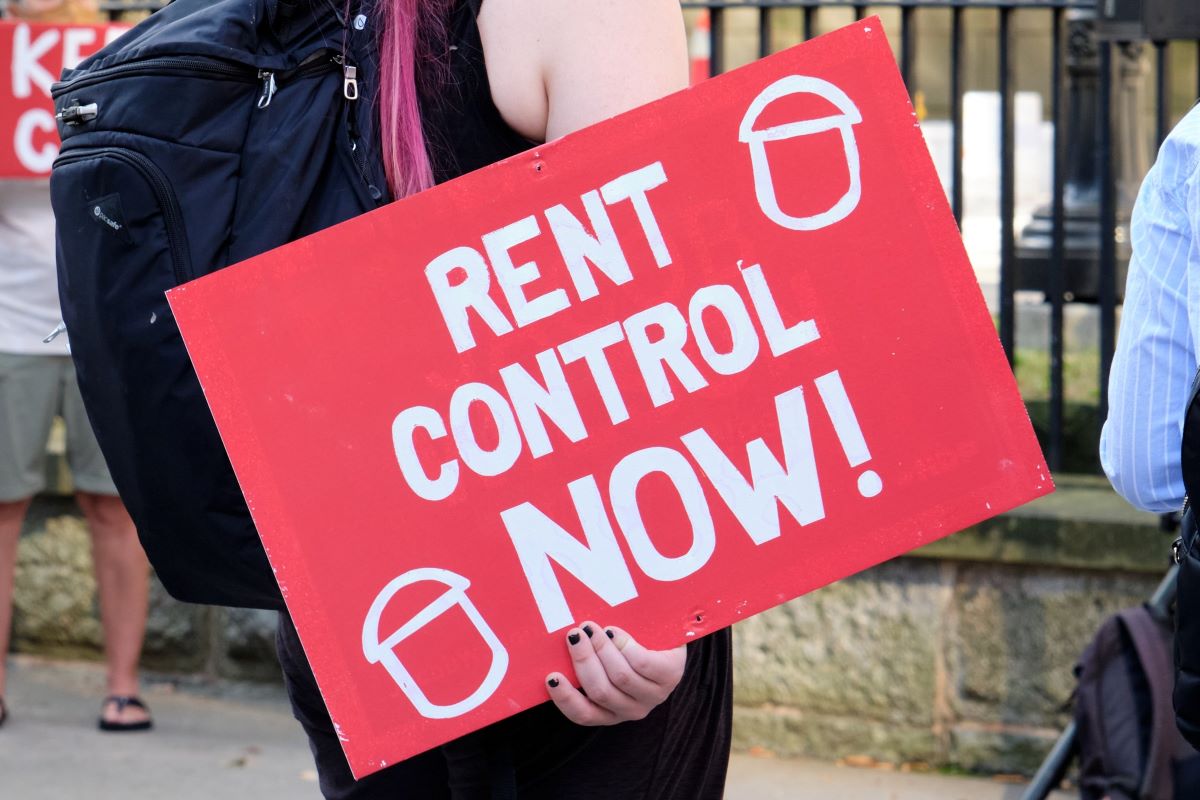Rent Control Can Reduce Homelessness Caused by the Lack of Affordable Housing
Picture this: A raging hurricane hits the Florida coast, knocking down everything in its path. Power lines tumble. Locals scramble to secure spaces in emergency shelters. Necessities like food, water, and gas become scarce. Then, in the middle of the disaster, prices for bottled water begin to creep up like the surrounding flood until a $10 case of water is suddenly sporting a price tag of over $50.
When you take advantage of an emergency by drastically raising the price of necessities, this is called price gouging. This practice is socially frowned upon and illegal. Corporations and individuals convicted of price gouging are looking at approximately $10,000 per violation, which is usually enough to make most businesses refrain.
This Exact Thing is Happening with Rent
There is no doubt that, at least since 2020 and arguably since 2008, the United States has grappled with a housing emergency. Any time you have 36 housing units available for every 100 renters in need, the situation is most certainly at a crisis level.
The pandemic and subsequent shutdowns left a stalled economy. Stagnant wages mixed with unfathomably high homeownership prices place a dismal future before us. The only market most Americans have left is the rental market. Sadly, that market is tapped out, too, and the gaping hole in the economy is now filled with a shortage of at least 7 million affordable homes.
Like the corporation that noticed a shortage of food and water and opted to charge exorbitant prices for necessities, the rental market is also taking advantage of people in an emergency.
Rental rate increases have shaken this country to its core, reaching record highs and ever-climbing. According to WILX10, rental rate increases peaked at a staggering 149%, a rate that is currently growing 4x faster than the median wage.
Given the harmful circumstances, it’s safe to conclude that corporate landlords nationwide are engaging in rent gouging. The question is: Why are they getting away with it?
Housing Is Not a Human Right
It is illegal to raise the prices of necessities during an emergency. We have already established that we suffer from a nationwide affordable housing crisis. Regional leaders admit that the problem has been at crisis levels for quite some time. Corporate landlords and real estate developers are getting away with increasing rental prices to the tune of quadrupling the median wage because current legislation doesn’t recognize housing as a human right.
On paper, you have a right to shelter, but that presumption is a fallacy since pitching a tent or makeshift shelter on public or private property in 48 of our 50 states is illegal. This means shelter is not a birth-given right either, even though shelter might be legally recognized as such.
The shelter is an ill-defined word that shouldn’t be a placeholder for housing, even in a sentence. Shelter can mean a shack the size of a prison cell with no bathroom, no privacy, and flammable walls on all sides.
From an even more sinister standpoint, the shelter could be defined as an actual prison cell where many people enduring houselessness will eventually wind up. By adamantly and collectively refusing to acknowledge housing as a human right, we are leaving the rental market unregulated and unchecked.
Could Nationwide Rent Control be the Answer?
The great debate about rent control has been raging for decades. Supporters say rent control drastically reduces homelessness; studies prove that statement true.
Criticizers of the rent control movement claim it can lead to gentrification or encourage landlords to leave their properties in disrepair creating citywide slums as far as the eye can see. They also claim landlords would raise the rents on their market rental units to compensate for the difference, which could lead to higher rent in the long run.
It’s important to note that this argument is hinged on the idea that all units would not be rent-controlled units, that some or even most of the housing would have to remain at market rate and therefore not be susceptible to the cap. This does not have to be the case.
Rent control could effectively reduce homelessness caused by the lack of affordable housing, particularly if applied to all properties nationwide. But even if we managed to make all or most rental units reasonably affordable, there’s still a housing shortage. And regulating rent does not necessarily incentivize developers to build more homes.
A better approach, in this case, could be a multifaceted one where rent control is combined with eviction protections and new zoning laws that incentivize innovative approaches to housing construction and conversion.
Talk to Your Legislators About Building for the Future
With houselessness on the rise and unaffordable housing the leading cause of this dilemma, it is clear that we need to be building – not from the blueprints of the past but instead with a fresh new model in mind.
Politicians are discussing innovative solutions requiring public support for altering single-family zoning laws, creating renter protections, and enforcing rent stabilization policies. Contact your local legislators and let them know you support all of the above and that you’re seeking a representative who stands with you in drafting laws that make housing a human right.













